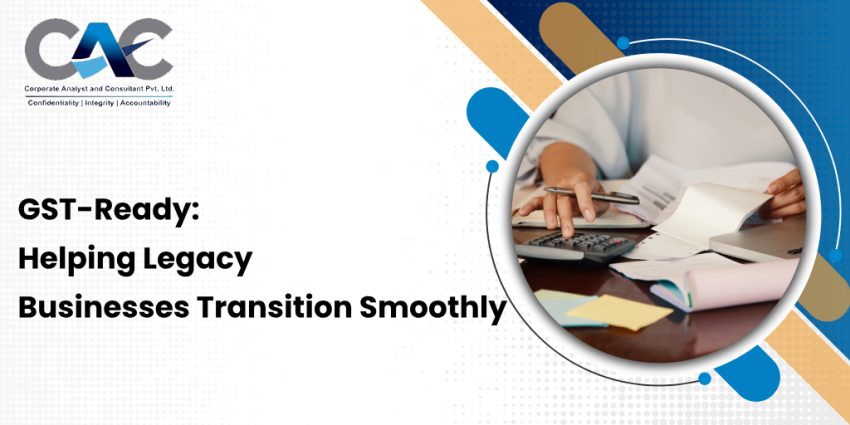The Goods and Services Tax (GST) brought a unified tax structure to India, but for many legacy businesses—especially those operating with old accounting systems—the transition was far from simple. With the changeover of the traditional VAT, excise and service tax structures to GST, transition needed planning, restructuring of processes, and technology improvements. Here a GST implementation company has a major role to play.
Most legacy businesses work on old invoicing and filing models and they do not necessarily have in-house taxation experts who can handle the frequent changes in the GST. GST implementation company steps in and gives them the right experience along with assistance and helps the businesses to transition to the new regime with utmost ease without them having to halt their day to day activities.
Understanding Legacy Business Challenges
In most cases, legacy businesses have years of data stored in various systems or kept manually. A large number of them even depend on the internal employees who are used to the old system of taxation. To these companies, GST will not only represent a change in taxation but a total transformation in the way their finance and supply chain units operate.
Be it revising the billing systems and taxation or revamping ERP, the change involves a phased approach. A GST implementation company delves into this process with such businesses and maps out this transition.
Key Strategies for a Smooth Transition
A reliable GST implementation company uses structured strategies that cover all technical and operational aspects. These include:
Assessment of Existing Systems
Before making any changes, companies conduct a thorough review of the current systems in place. This includes checking the compatibility of accounting software, invoice templates, and stock records. The goal is to identify gaps and areas that need upgrading.
Staff Training and Awareness
GST implementation isn’t just about systems—it’s also about people. Employees need to be made aware of new filing requirements, GST returns, and invoice formats. The implementation company organizes training sessions to ensure that the finance and sales teams are on the same page.
Compliance Mapping
Every business has a different compliance requirement depending on its size, state, and industry. The GST implementation company prepares a compliance roadmap that includes deadlines, return types, and input tax credit rules. This helps legacy businesses avoid penalties and delays.
Software Upgrades and Data Migration
For legacy firms, moving data from old formats to GST-compliant systems is one of the most complex parts. Implementation companies ensure secure and accurate data migration. They also recommend or install updated accounting tools that are recognized under GST law.
Mock Filing and Testing
Before the actual GST filing begins, mock runs are conducted. These test filings help identify issues in invoice structures, mismatches in input credit, and any technical errors. Early identification helps businesses fix them before facing actual compliance checks.
Post-Implementation Support
A trustworthy GST implementation company doesn’t walk away after setup. They continue to offer support during initial filings, audits, and even help with resolving notices from the tax department.
The Long-Term Value of Expert Help
GST rules evolve regularly. New changes in invoicing, e-way bills, and return structures often confuse businesses, especially those that still function traditionally. Having an experienced GST implementation company on board means legacy businesses can adapt quickly and avoid disruptions.
Beyond compliance, these companies also offer insights into how businesses can improve operational efficiency under GST. For instance, better tracking of input tax credit or restructuring vendor relationships to reduce tax burden.
Conclusion
The move to GST might be source of panic to legacy companies, but when a proper support system is in place, it will be a comfortable and fruitful process. A GST implementation company is useful in ensuring that the gap between the traditional process and new age compliance becomes smaller so that a business can focus on its growth without having to worry about tax issues. It could be a software update, staff training, and on-going filing support; these experts can make the GST journey workable and future-proof.
















